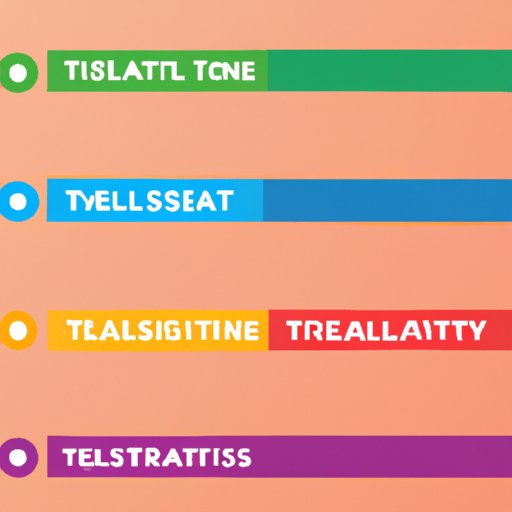Introduction
Budgeting is an important part of managing your finances and achieving your financial goals. It involves creating a plan for your money and tracking where it goes each month. Setting budget goals can help you stay on top of your finances and reach your long-term financial objectives. In this article, we will explore how to set budget goals and create a financial plan that works for you.
Create a Budget Worksheet
The first step in setting budget goals is to create a budget worksheet. This worksheet should include all sources of income, such as wages, investments, and other sources. You should also estimate all monthly expenses, such as rent, utilities, food, transportation, and other necessary costs. Once you have identified all sources of income and estimated expenses, you can calculate your net monthly income, which is the amount of money left after all expenses are paid.
List Short-Term and Long-Term Financial Goals
Once you have created a budget worksheet, you can begin to list short-term and long-term financial goals. These goals can range from saving for a down payment on a house to investing in stocks. It’s important to break down larger goals into smaller, more achievable goals so that they are easier to manage. Prioritizing your goals in order of importance is also key to staying focused and motivated.
Track Your Spending Habits
Tracking your spending habits is an important step in setting budget goals. Knowing where your money is going each month can help you identify areas of your budget where you can cut back. Monitoring your spending also helps ensure that you don’t exceed your budget and go over your allotted amount for any given month.
Separate Needs From Wants
When setting budget goals, it’s important to separate needs from wants. Essential needs, such as food, housing, and transportation, should be prioritized over non-essential wants, such as entertainment, dining out, and shopping. It’s also important to set limits on how much money you are willing to spend on wants so that you don’t overspend.

Set Realistic Goals and Timelines
In order to stay on track with your budget goals, it’s important to set realistic goals and timelines. Create specific goals and timelines for achieving them, and adjust them as needed. This will help keep you motivated and focused on reaching your financial goals.

Automate Savings to Increase Discipline
One way to stay disciplined with your budget is to automate your savings. Set up automatic transfers from your checking account to your savings account each month so that you don’t have to think about it. Automating your savings can also reduce the temptation to use funds for other purposes.
Use Budgeting Apps for Convenience
There are a variety of budgeting apps available that can make tracking your spending and reaching your budget goals easier. Explore different budgeting apps to find one that best meets your needs. Utilize the app to stay organized and track progress towards your financial goals.
Conclusion
Setting budget goals can help you stay on top of your finances and reach your financial goals. To do so, create a budget worksheet that includes sources of income and estimated expenses. List your short-term and long-term financial goals and prioritize them in order of importance. Track your spending habits, separate needs from wants, set realistic goals and timelines, automate savings, and use budgeting apps for convenience. By following these steps, you can create a financial plan that works for you and achieve your financial goals.
(Note: Is this article not meeting your expectations? Do you have knowledge or insights to share? Unlock new opportunities and expand your reach by joining our authors team. Click Registration to join us and share your expertise with our readers.)
